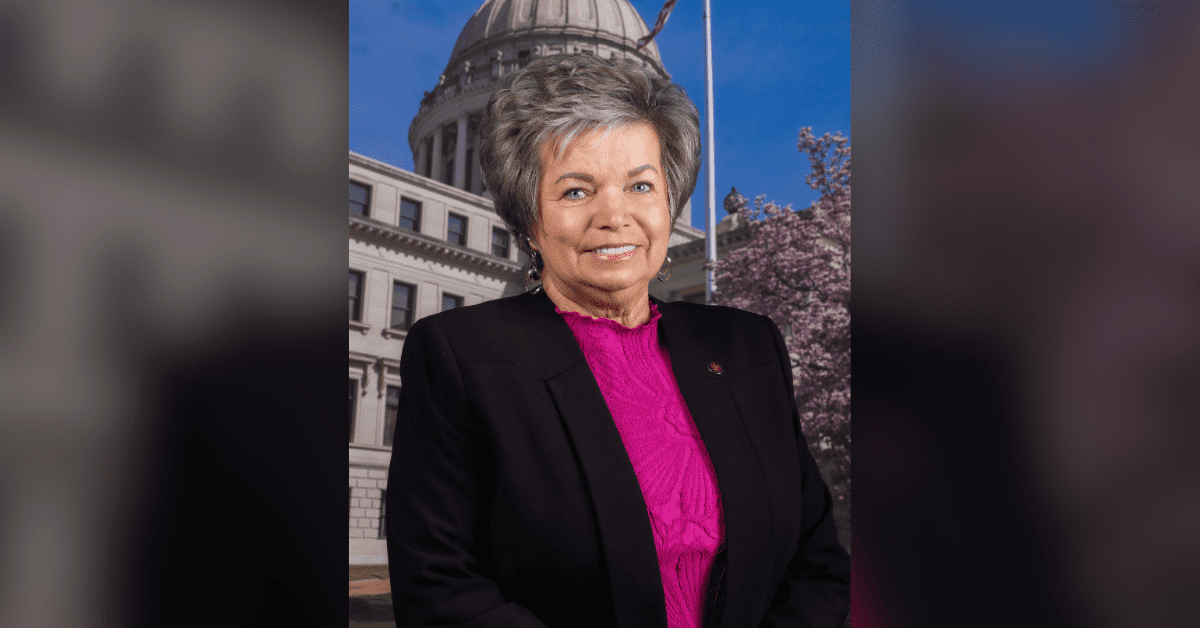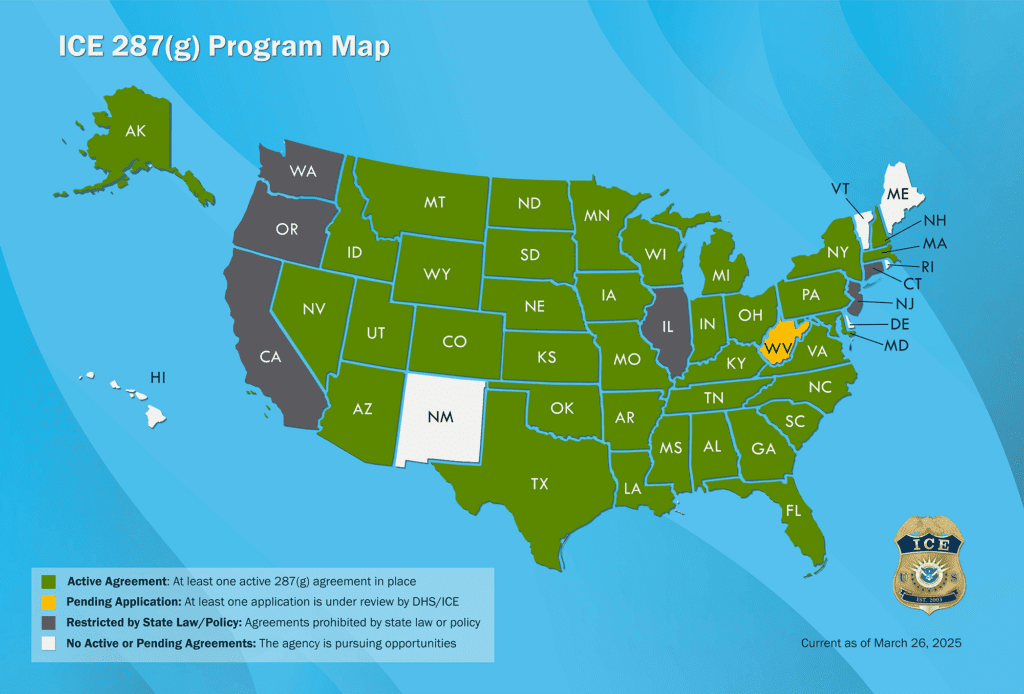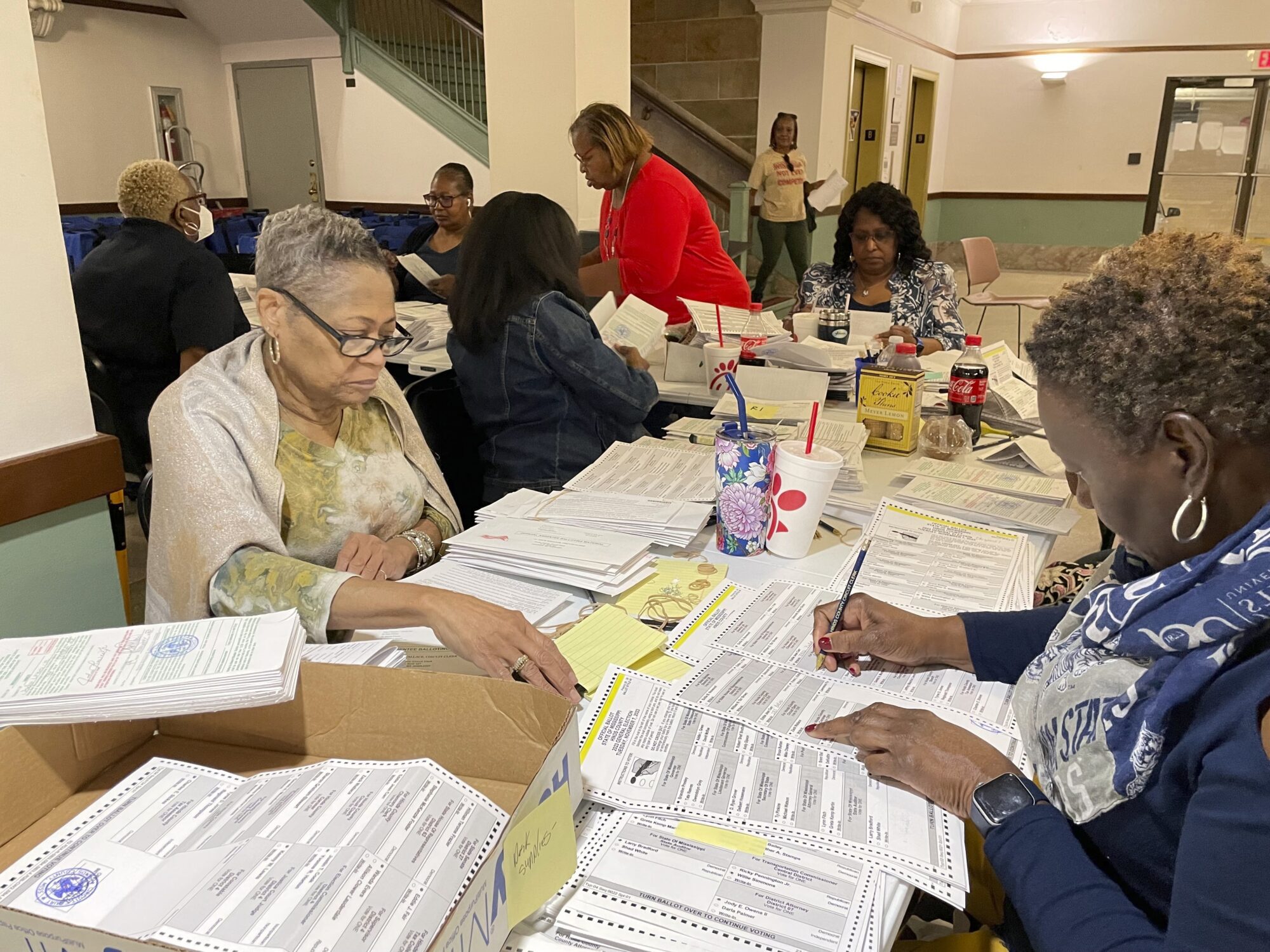
Senator Kathy Chism
- State Senator Kathy Chism is seeking a resolution late in the legislative session to call on state law enforcement to enter into ICE’s 287(g) Program.
State Senator Kathy Chism (R) said Tuesday that she plans to introduce a resolution later this week calling on Mississippi law enforcement agencies to participate in a 287(g) agreement with U.S. Immigration and Customs Enforcement (ICE).
The Illegal Immigration Reform and Immigrant Responsibility Act of 1996 authorized ICE to delegate to state and local law enforcement officers the authority to perform specified immigration officer functions under the agency’s direction and oversight, a practice now referred by its section in the law 287(g).
According to ICE, the 287(g) Program enhances the safety and security of communities by allowing ICE Enforcement and Removal Operations to partner with state and local law enforcement agencies to identify and remove criminal aliens who are amenable to removal from the U.S.
Chism said illegal immigration is a “national emergency.” During her floor speech, she said gang members were “terrorizing American cities” and committing crimes, such as murder and bringing fentanyl across the southern border.
“We have an immigrant crisis like we’ve ever seen,” Chism said.
Senator Chism noted that the Mississippi Attorney General’s Office has entered into a 287 (g) agreement. She said allowing law enforcement to cooperate with ICE through identifying illegal immigrants in jail, while serving administrative warrants, and making arrests is needed.
“This [illegal immigration] has to be stopped, and ICE must have cooperation from local law enforcement to do it effectively,” Chism told the Senate, asking for members to cosponsor the resolution with her.
Chism, however, did not have the chance to finish her floor speech as State Senator Brice Wiggins (R) pointed out that she asked to speak on a point of personal privilege, which is intended to address the integrity of the body. Instead, Wiggins said she was speaking on immigration. Lt. Governor Delbert Hosemann (R) agreed with Wiggins, effectively ending her time before the chamber.

According to ICE, since President Donald Trump (R) took office, “Several states, including but not limited to Georgia and Florida, have passed, or are considering, State legislation mandating law enforcement agencies (LEAs) seek out or enter into memorandums of agreement (MOA) with ICE pursuant to a partnership under the 287(g) Program.”
For example, the Florida Sheriffs Association announced in February that every county in the state is now working with ICE to ensure there are ICE deputized sheriffs’ deputies and correctional officers in all 67 county jails.
However, the program has become controversial in some circles, primarily among Democrats.
Last week, WFTS Tampa Bay reported that the Fort Myers City Council in Florida “voted down a 287(g) agreement that would have enhanced local law enforcement training, enabling officers to assist with detentions and deportations.”
“The 3-3 split vote followed emotional testimony from several council members, who expressed concerns that the measure could lead to racial profiling and harm the community,” WFTS reported.
Florida Attorney General James Uthmeier (R) warned the city that they may have serious repercussions.
The American Immigration Council has written extensively on how the program has been linked to profiling.
“Because local law enforcement officials are often not trained in immigration enforcement—and those who are receive limited training—they can rely on stereotypes and discriminatory tactics to detain individuals suspected of being in the county without authorization,” the organization wrote in July 2024.
Yet, ICE notes that law enforcement nominates officers to participate in the 287(g) Program. Those nominees must possess U.S. citizenship, complete and pass a background investigation, and have knowledge of and have enforced laws and regulations related to law enforcement activities at their jurisdictions.
ICE further says Task Force Model nominees must also have at least two years of total sworn law enforcement officer experience. The nominees receive training at the expense of ICE related to the immigration duties pertinent to the applicable MOAs.
If the Chism resolution comes to fruition, Mississippi could join other states calling for their law enforcement agencies to join the 287(g) Program in her colleagues in the Senate concur and move the resolution forward prior to the end of the legislative session.
A copy of the proposed resolution was not available at press time, nor did the Senator provide further comments.











